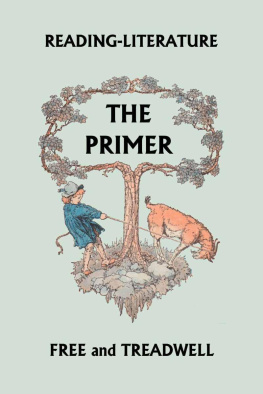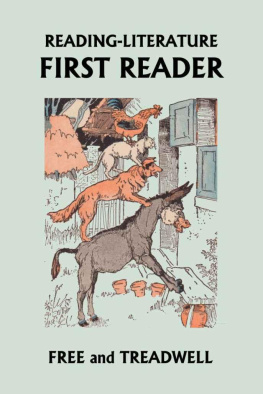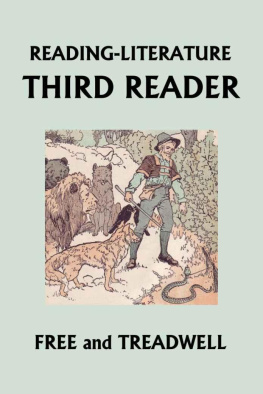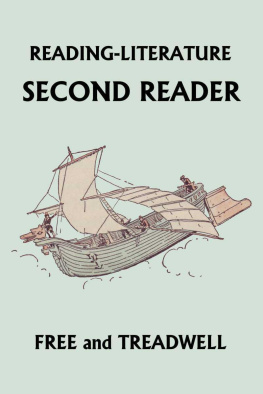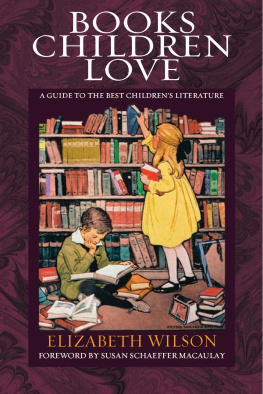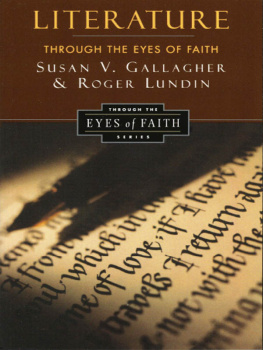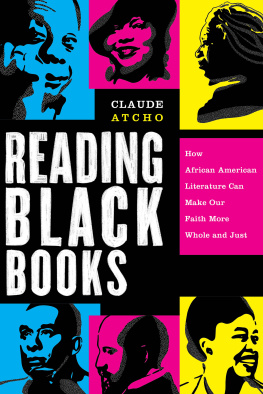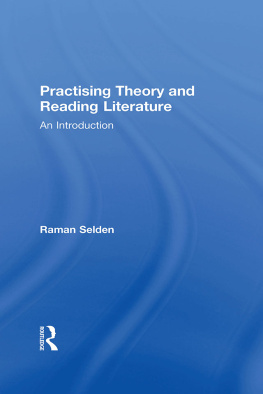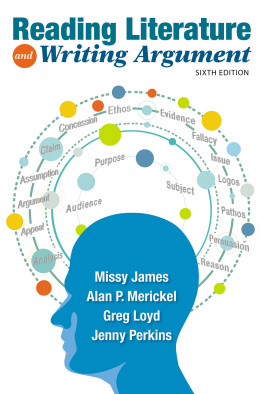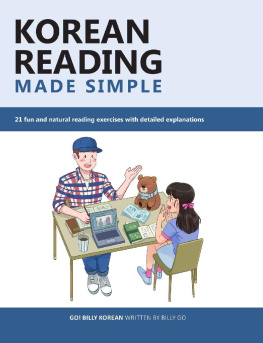READING-LITERATURE: The Primer
by
Harriette Taylor Treadwell and Margaret Free
Yesterday's Classics
Chapel Hill, North Carolina
Cover and Arrangement 2010 Yesterday's Classics, LLC
All rights reserved. No part of this book may be reproduced or retransmitted in any form or by any means without the written permission of the publisher. This edition, first published in 2010 by Yesterday's Classics, an imprint of Yesterday's Classics, LLC, is an unabridged republication of the work originally published by Row, Peterson & Co. in 1910. This title is available in a print edition (ISBN 978-1-59915-129-8).
Yesterday's Classics, LLC
PO Box 3418
Chapel Hill, NC 27515
Yesterday's Classics
Yesterday's Classics republishes classic books for children from the golden age of children's literature, the era from 1880 to 1920. Many of our titles are offered in high-quality paperback editions, with text cast in modern easy-to-read type for today's readers.
The illustrations from the original volumes are included except in those few cases where the quality of the original images is too low to make their reproduction feasible. Unless specified otherwise, color illustrations in the original volumes are rendered in black and white in our print editions.
Preface
For years the most progressive educators have been urging that only good literature should be used in school readers. Some authors of primers have thought it impossible to provide such material within the vocabulary that beginners can learn with ease. Others have used a little real literature with a large amount of unrelated and uninteresting material specially prepared for the sake of word repetition and phonic drill. Experience proves that all children are interested in and enjoy the simple folk tales, which are the literary products of many minds, and which have survived the centuries because they represent universal human experiences and satisfy certain common needs of childhood.
Through countless repetitions, from one generation to another, they have assumed a form marked by simplicity and literary charm. After years of careful work we present some of these tales so as to utilize the child's love for the stories and make an easy road to reading. Avoiding the long struggle through forced interest, and the devious byways of artificial methods, we start the child at once into the realm of good, appropriate literature. THE AUTHORS
Contents
The Little Red Hen
The little red hen found a seed.
It was a little seed.
It was a wheat seed.
The little red hen found a seed.
It was a wheat seed.
The little red hen said, "Who will plant the seed?"
The little red hen said, "Who will plant the seed?"
The pig said, "Not I."
The cat said, "Not I."
The dog said, "Not I."
The little red hen said, "I will."
The little red hen said, "Who will cut the wheat?"
The pig said, "Not I."
The cat said, "Not I."
The dog said, "Not I."
The little red hen said, "I will then."
And she did.
The little red hen said, "Who will thresh the wheat?"
The pig said, "Not I."
The cat said, "Not I."
The dog said, "Not I."
The little red hen said, "I will then."
And she did.
The little red hen said, "Who will grind the wheat?"
The pig said, "Not I."
The cat said, "Not I."
The dog said, "Not I."
The little red hen said, "I will then."
And she did.
The little red hen said, "Who will make the bread?"
The pig said, "Not I."
The cat said, "Not I."
The dog said, "Not I."
The little red hen said, "I will then."
And she did.
The little red hen said, "Who will eat the bread?"
The pig said, "I will."
The cat said, "I will."
The dog said, "I will."
The little red hen said, "You shall not eat the bread.
The little red hen said, "Who will eat the bread?"
The pig said, "I will."
The cat said, "I will."
The dog said, "I will."
The little red hen said, "You shall not eat the bread.
I will eat it."
And she did. The little red hen found a seed.
It was a wheat seed.
She said, "Who will plant the wheat? Who will cut the wheat? Who will thresh the wheat? Who will grind the wheat? Who will make the bread?"
The pig said, "I will not."
The cat said, "I will not."
The dog said, "I will not."
The little red hen said, "Then you shall not eat the bread."
The Gingerbread Boy
There was a little old woman.
There was a little old man.
The little old man had a pig.
The little old woman wanted a boy.
The little old man wanted a boy.
The little old woman said, "I will make a gingerbread boy."
So she made a gingerbread boy.
The gingerbread boy ran away.
He ran away from the little old woman,
He ran away from the little old man,
He ran, and he ran, and he ran.
The gingerbread boy met a cat.
He said, "I am a gingerbread boy, I am, I am, I am.
I ran away from the little old woman,
I ran away from the little old man,
I can run away from you, I can, I can, I can."
And he ran, and he ran, and he ran.

